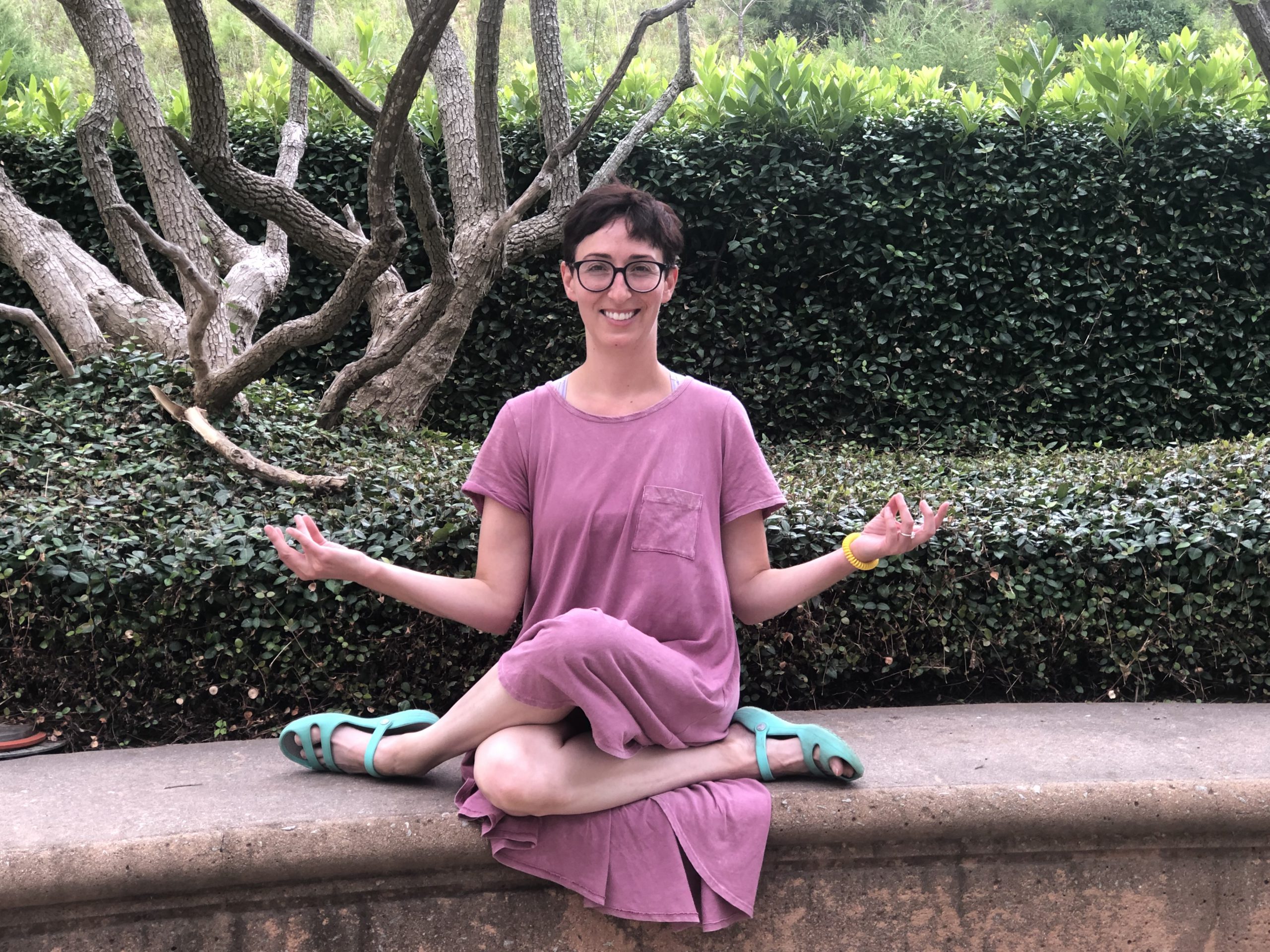Written By: Cristina Klymasz, MS, OTR/L, CBIS, RYT, CLT, MSCS
 Happy National Yoga Awareness Month! National Yoga Awareness Month started in 2008 and has been celebrated ever since. Every September, National Yoga Awareness Month celebrates adding new healthy habits, such as yoga, into your everyday life. This month also highlights pertinent yoga research proving that yoga is beneficial for the body and can be incorporated into therapy regimes and preventative medicine.
Happy National Yoga Awareness Month! National Yoga Awareness Month started in 2008 and has been celebrated ever since. Every September, National Yoga Awareness Month celebrates adding new healthy habits, such as yoga, into your everyday life. This month also highlights pertinent yoga research proving that yoga is beneficial for the body and can be incorporated into therapy regimes and preventative medicine.
As an occupational therapist that incorporates yoga poses into many sessions, I’m reminded by my patients on a daily basis how much healthier they feel by incorporating yoga. Many of my patients incorporate their learned poses into their daily life for stress relief, pain relief, and fatigue relief. One of my recent patients just started scheduling 10-15 minute time blocks into her phone calendar. She reported that those 10-15 minutes are “just me time”. For the allotted time, she performs yoga poses that she has learned during sessions that make her feel good. Her goal is to eventually carve out 45 minutes to one hour daily of “just me time”.
I have started to adopt “just me time” as well. It is amazing to see how just 10-15 minutes of “just me time” can change how we feel. “Just me time” can consist of meditation, breath work, or enjoying yoga poses/stretches. If you’re unsure of where to start, YouTube has a plethora of free and accessible yoga classes ranging from a few minutes to 1-2 hours. Most yoga studios now offer virtual and live classes as well.
 As we enter into September, try scheduling 10-15 minutes of “just me time” into your day. You will be surprised at not only the benefits but the health changes that occur. For example, Druan, et al., (2022) interviewed 166 yoga practitioners and explored their perception of well-being. All 166 participants reported themes of well-being, such as feeling balanced and more stable. Psychologically there are health benefit changes from yoga. Estevao (2022) reviewed the current literature regarding yoga and stress relief. The current literature documents that yoga physiologically can decrease cortisol and cytokine levels in consistent practitioners. Cortisol and cytokines play a pivotal role in most inflammatory and neurological diseases. A consistent practice can help decrease your chance of developing stress-induced diagnoses, but also improve your symptoms if you already have one.
As we enter into September, try scheduling 10-15 minutes of “just me time” into your day. You will be surprised at not only the benefits but the health changes that occur. For example, Druan, et al., (2022) interviewed 166 yoga practitioners and explored their perception of well-being. All 166 participants reported themes of well-being, such as feeling balanced and more stable. Psychologically there are health benefit changes from yoga. Estevao (2022) reviewed the current literature regarding yoga and stress relief. The current literature documents that yoga physiologically can decrease cortisol and cytokine levels in consistent practitioners. Cortisol and cytokines play a pivotal role in most inflammatory and neurological diseases. A consistent practice can help decrease your chance of developing stress-induced diagnoses, but also improve your symptoms if you already have one.
While the aforementioned evidence from this year is only a smattering, it is quite persuasive. Why wouldn’t someone want to participate in something that feels good to do that will also help your health? I hope that you continue to view the current research that is building advocating for introducing yoga into our lives. I can’t think of any better way to celebrate yoga and the health benefits that it provides than adding yoga into our daily lives. I hope September brings you good health and peace as you incorporate your “just me time”.
Want to learn more? Register for my upcoming Live Interactive Webinar, Therapeutic Yoga for the Neurological Patient, during Summit’s CE Virtual Conference on November 3rd!
Explore online continuing education courses from Cristina below:
Holistic Treatment of the Dementia Population
Assessment of the Dizzy Patient in the Acute Care Setting
Evidence-Based Cognitive Rehab Strategies for Neurological Disorders
Vision Rehabilitation for the Neurological Patient
Therapeutic Yoga for the Neurological Patient: Improving Fatigue, Balance, Posture, and Tone
Visit summit-education.com for more information.
References:
Estevao, C. (2022). The role of yoga in inflammatory markers. Brain, Behavior, & Immunity – Health, 20, 100421. https://doi.org/10.1016/j.bbih.2022.100421
Ramirez-Duran, D., Kern, M. L., & Stokes, H. (2022). More than a feeling: Perceptions of wellbeing in regular Ashtanga Yoga practitioners. International Journal of Wellbeing, 12(2), 88–113. https://doi.org/10.5502/ijw.v12i2.2027
